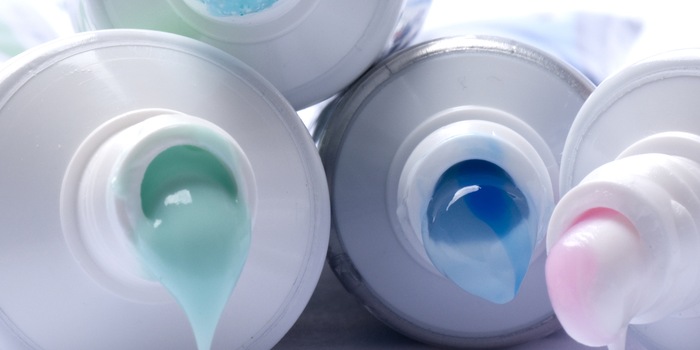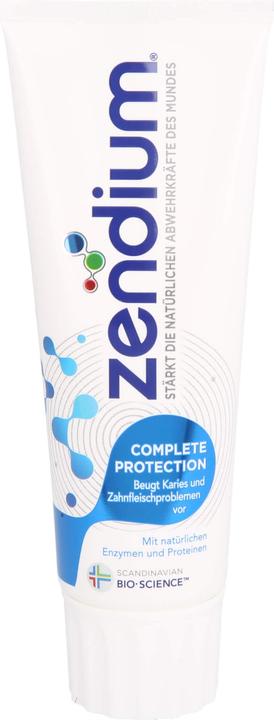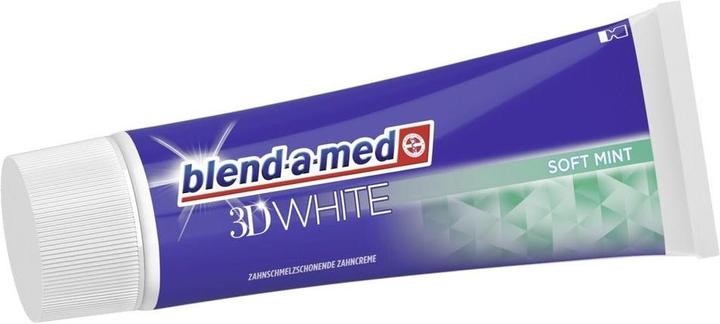

The colourful world of toothpastes
If the adverts are to be believed, a radiant white smile is one of the main beauty criteria for both sexes. Once you've found the toothbrush that's right for you, it's time to choose a toothpaste. Complete protection, for sensitive teeth or whitening? But what's the difference?
Full protection toothpastes
They promise total protection for teeth and gums against cavities. The decisive factor is therefore fluoride, which has been proven to be effective against cavities. It is essential for preventing cavities caused by bacterial deposits on the teeth, known as dental plaque. Plaque bacteria feed on the sugar found in food. They produce acids that destroy the minerals in the enamel and damage it. Fluoride toothpastes combat this process. Their effectiveness has been clearly demonstrated: fluoride helps remineralise tooth surfaces and makes teeth more resistant to acids and cavities. Toothpastes containing amine, tin and potassium fluoride are preferable. In addition to its anti-caries effect, the combination of amine fluoride and tin fluoride has antibacterial properties that act on plaque and prevent inflammation.

Special toothpastes for children
Children's toothpastes protect milk teeth and make them more resistant to cavities. They contain less fluoride than "adult toothpastes", as children are much more likely to swallow the toothpaste. They also have a milder taste and are therefore more pleasant.
Toothpastes for sensitive teeth
They are specially designed for sensitive teeth, the main cause of which is bare dental necks. Toothpaste for sensitive teeth should therefore be gentle and have little or very little abrasion. And sensitive teeth should be brushed with gentle strokes.
The degree of abrasion is an important criterion when choosing a toothpaste. If, in the absence of toothpaste, plaque can be removed with a toothbrush and water alone, toothpaste must also help to remove coffee, tea or tobacco stains. That's why it contains surfactants and cleaning agents. The degree of abrasion varies according to the size, shape and type of cleaning agent. If healthy teeth can withstand even a high degree of abrasion, opt for a toothpaste that is gentle on exposed dental necks. The degree of abrasion is not usually shown on product packaging.
The whitening toothpastes
More and more toothpastes promise to whiten your teeth and remove stains. The paste contains tiny grains that lighten the enamel. The size, number and hardness of these mini cleaning particles determine how abrasive the toothpaste is. But be careful: don't brush your teeth on a daily basis with a toothpaste that has too high a degree of abrasion to avoid damaging your enamel.
Black toothpastes with activated charcoal, a rising trend
The main selling points of the various manufacturers of these unusually shaded toothpastes are gentle cleaning and reliable removal of stains and deposits. The paste is supposed to make teeth whiter while also being gentle on them. Unlike other whitening toothpastes that use fine abrasive particles to remove deposits, the focus here is on the absorbent properties of activated charcoal.
Discovering foreign countries and cultures and tasting coffee or other delicacies is what I enjoy most when I travel. My home is decorated with little gems I find in thrift shops and at flea markets. When I’m having one of my big DIY moments, my creativity is unleashed. Both the mountains and the seaside restore my inner balance. With a snowboard or surfboard under my feet, I’m happy.



